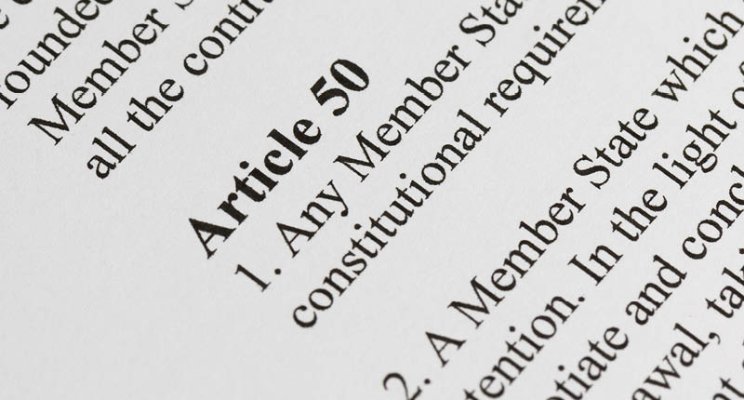The triggering of Article 50 has left many questions on the implications of this decision for workers and employers in the UK.
Currently, EU citizens can live and work in the UK without the need for work permits or visas. Although Brexit might eventually mean an end or restrictions on this free movement of people, any changes are yet to be decided. In the meantime, both employers and employees will be looking for reassurance for what it means for them.
No immediate change
Among all the uncertainty, one thing is certain; there is no immediate effect on employment law or the right of EU nationals to work in the UK. Article 50 triggers a 2 year process and our legal framework will remain in place until at least the end of those two years.
How significant is EU employment law in the UK?
Much of our employment law is based on EU law. The UK is currently required to implement EU law. The Working Time Regulations 1998 and the Transfer of Undertakings (Protection of Employment) Regulations 2006 (TUPE) are two significant examples of regulations based on EU law.
However, this is by no means the full picture. There are some significant areas of UK employment law that have nothing to do with EU law. The law on unfair dismissal is probably the most important. The right to request flexible working and the national minimum wage are further examples. What is more, the UK created employment protection in areas such as race discrimination, long before the relevant EU directive came into effect. Finally, the UK sometimes builds on the minimum standards in EU directives to give more generous rights. This is known as gold-plating. For example, EU law only requires employers to give workers 20 days’ paid holiday but UK regulations increased that entitlement to 28 days.
Possible changes to UK employment law
No one can say with any certainty what the future impact of Brexit will be on UK employment law. It all depends on the terms of the trade agreements that the UK negotiates with the EU or its individual member states. One possible outcome is that the UK would still have to apply most EU employment laws as a condition of accessing the single market. This is the case for non-EU countries such as Norway.
At the other end of the spectrum, the UK may be released from applying EU law. In this scenario, the consensus is that a wholesale repeal of all UK employment law based on EU law is very unlikely. Commentators broadly agree that likely targets for changes include the regulations on agency workers and elements of the working time regulations and TUPE. However, this will depend very much on the politics of future governments.
Employing EU nationals
In the short term, EU nationals from outside the UK can still continue to work in the UK. This right of free movement of people remains until the end of the formal withdrawal process.
In the longer term the situation is unclear. EU nationals who have exercised the right to work in the UK before the UK’s withdrawal may point to a precedent in international law. This is the principle of acquired rights; having exercised rights under an EU treaty, an individual may continue to benefit from those rights even after the treaty has ended. This potential protection for the existing workforce could encourage an increase in immigration from the EU before the UK leaves the EU.
After the UK’s withdrawal, the terms of any future trade agreements will determine whether the right of free movement will exist at all or if it will be restricted. Non-EU countries, such as Norway and Switzerland, have to allow free movement of EU nationals in order to access the single market. However, countries such as Chile are not required to honour free movement under their trade agreements with the EU.
Next steps
Employees may be anxious about their rights, particularly those employees whose right to work here depends on the UK’s membership of the EU. Employers should consider issuing a statement to reassure employees and set up meetings to deal with any concerns.
Employers who are heavily reliant on non-UK EU nationals may wish to audit the basis of their employees’ rights to work in the UK. This could be followed up with a review of recruitment practices. Many employers are concerned that the impact of Brexit on the UK economy will trigger a downturn in business. You may want to consider any staffing efficiencies or increasing flexibility in your workforce to ensure that your business is as resilient as possible in these uncertain times.
We can help with writing staff communications and advise on the extent to which you can offer reassurance to your staff. For advice on avoiding any discriminatory pitfalls in changing your recruitment practices, as well as advice on steps to increase your workforce flexibility, such as restructuring, redundancies and changing terms and conditions of employment or any other employment law issues, contact Mark Rothman at mr@jefferieslawco.uk or on 01702 332331.
The contents of this article are for the purposes of general awareness only. They do not purport to constitute legal or professional advice. The law may have changed since this article was published. Readers should not act on the basis of the information included and should take appropriate professional advice upon their own particular circumstances.
